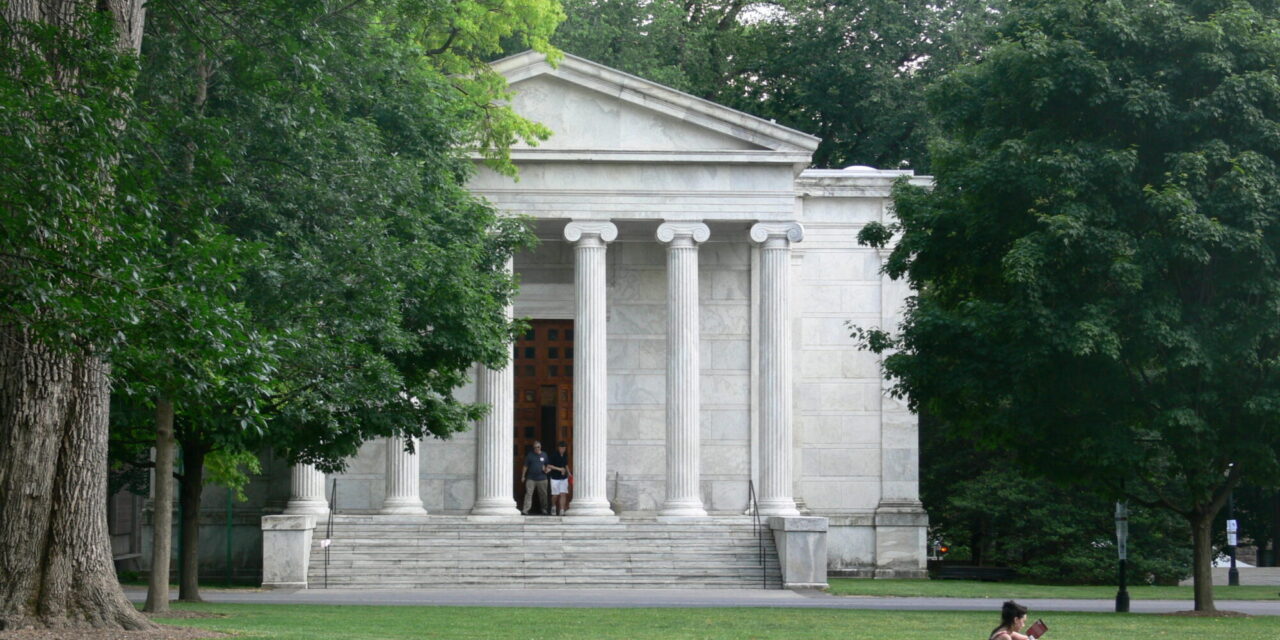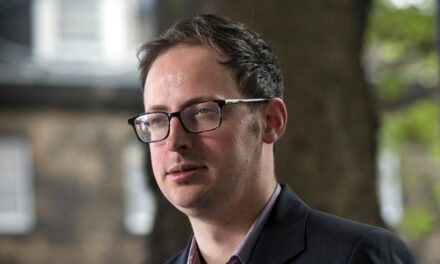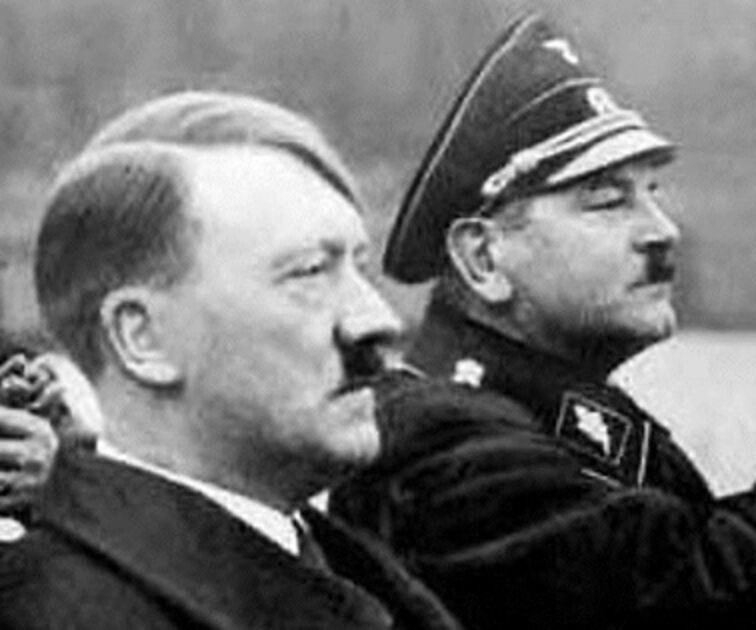I’ll admit that I have a skewed impression of Ivy League schools. I was raised in Princeton, New Jersey. Of my six closest friends, four had fathers who were professors at the university: the co-head of the English Department, two in Near-Eastern Studies, and a rocket scientist. One of my friends whose father wasn’t a professor was accepted to and graduated from Princeton. He married a Princeton girl who then also became one of my closest friends.
When I was a senior in high school, I spent half my free time on campus and in the eating clubs because I’d become friends with some upperclassman. That allowed me to get a feel for life as a Princeton student without actually being one. It was nice because while I was smart enough to go to Princeton, I wasn’t a disciplined enough student to earn a spot there. Later on, when I moved to Los Angeles, I socialized with several of the upperclassman I had befriended in Princeton.
So, even though I am not a Princeton graduate, the culture and values of the place are familiar to me. I know the good and the bad. And I know that the stereotypes people have about the Ivies and their faculties and students are a bit simplistic. One thing that is accurate is that there are a lot of privileged kids, some of whom are arrogant and elitist, but that doesn’t describe the people who befriended me or the majority of students I came to know. The faculty can fairly be described as left-leaning, but with plenty of exceptions. True radical left professors are rare enough that they stand out and are outnumbered by obnoxiously right-wing ones.
I can also tell you this. Princeton is one hell of a good university and it’s a huge asset for the country.
Having said that, the place exists in a bubble, as does the surrounding town. It’s incredibly out-of-touch with the values of “mainstream” America. If you were to say it lacks practicality and common sense, I would not argue with you. It only knows want and hardship in the abstract and the high value it puts on raw brainpower comes with an inevitable high level of condescension towards those whose skills and talents are more mechanical.
I had to unlearn many things from my experience growing up in that bubble. I unlearned them in college in Los Angeles and Kalamazoo. I unlearned them living in Philadelphia and working for ACORN. My relationship with Princeton is complicated. I will always love and value the place, but I can be a harsh critic, too.
At the same time, I can be defensive when I feel it is unfairly attacked or portrayed, as often happens to Ivy League schools, both in politics and entertainment. Take Harvard, for example:

There was a time when the Ivies were anti-Semitic, especially in their admissions, but that time has long since passed. It should be noted, too, that historic policies to limit Jewish enrollment co-existed with some surprising demographics. For example. in 1967, the student bodies at Columbia University and the University of Pennsylvania were 40 percent Jewish at a time that Jews were two percent of the population. This doesn’t excuse discrimination in admissions, but it does demonstrate that the Ivies were probably the most hospitable institutions in the country for Jews even when they were actively working to reduce their numbers.
Of the four Princeton professors I mentioned above, two are Jewish. Some of the most famous professors in the country (think Lawrence Tribe and Alan Dershowitz) are Jews who made their careers at Harvard. One of my closest friends right now is a Jewish professor at the University of Pennsylvania who has a Ph.D from Harvard. My closest friend among the Princeton upperclassmen I knew in high school is Jewish. My friend who was admitted to and graduated from Princeton is Jewish. None of these people (with the possible but uncertain exception of Dershowitz) would agree that the Ivies are anti-Semitic.
This doesn’t mean that Jewish professors and students at Ivy League schools don’t sometimes experience anti-Semitism. With the war in Gaza raging, criticism of Israel can be white-hot, and can often be expressed in ways that feel (or are) hostile to Jews in general. This has been true to a lesser degree for decades, as support for the Palestinian cause runs high on campuses throughout the country, but more so at elite coastal institutions. Nonetheless, it is simply false to call Harvard or any of the other Ivies “anti-Semitic.”
As for students being accepted “from all over the world,” this is because of the excellence of the Ivy League schools. This international thirst for an Ivy League education is part of why my upbringing was so different from the average American. I went to school with people from every continent and every religion precisely because they were the children of professors and graduate students at the university. This was the positive aspect of the culture. If Princeton exists in a bubble separate from much of the country, much of the country exists in bubble separate from the world. The foreign professors and students at Princeton never showed me the slightest inclination to “rip our country apart.” At the very worst, they were indifferent, and staying here simply for the education without much investment in the country either way. Much more often, they were in love with the country and incredibly grateful for the opportunity it had granted them.
Finally, it’s absurd to say that Harvard or any of the other Ivies are “threats to democracy.” For more than two centuries they have tried to inculcate the values of representative government. If they have a conceit, it’s that they are the training ground for the people who will serve and protect our democracy, which is the best system in the world. In this sense, they have always been “all American Apple Pie.”
If I have a criticism, it’s that they’ve put less emphasis on this than in staffing Wall Street in recent decades, but I don’t think Trump is attacking them for being too dedicated to capitalism.
I get that people resent the Ivy Leagues. There are good and bad reasons to resent them. A bad reason is that you weren’t a good enough student to gain acceptance. A good reason is that they breed a definite level of condescension toward people whose gifts aren’t in academic fields. A bad reason is that they have a more worldly outlook than the country at large. A good reason is that some of their graduates are arrogant and lack common sense.
Defending the Ivy Leagues will never be “good politics,” and that’s one reason why Trump is picking this fight. I am defending them not because I think it will help win votes or stop Trump, but simply because they deserve a defense.








Anyone attacking higher education in the US, especially the “Ivy Leagues”, is either an envious idiot who should be dismissed out of hand, or someone trying to destroy the country from the inside. The latter is just treason, and there’s already an established penalty for that.
Higher education is how you build a functioning foundation for a successful country. Full stop.
The current group of elites who are attempting to destroy higher education in this country are trying to destroy the country from the inside so that they and their families and friends can buy up the remaining pieces to run as their fiefdoms. Neo-feudalism/aristocracy is the next step after fascism. Anyone can disagree with me if they want, but they’d be objectively incorrect.
It doesn’t take an Ivy League degree to see what the trajectory is.
Hi Martin, I went to junior high and high school in Princeton but went to Rutgers the state school where my father taught. My experience felt the same as yours. Much to criticize but the current attacks, which come from ignorance and resentment, miss the mark.